UKRAINE WORKERS: WARTIME DIARIES
WHY WE’RE DIFFERENT
We are the largest U.S.-based international worker rights organization partnering directly with workers and their unions, and supporting their struggle for respect, fair wages, better workplaces and a voice in the global economy.
We value the dignity of work and workers. We know how all the work everyone depends on gets done–who picks the food for your table, cleans your home so you can go to the office, makes your clothes, keeps your streets clean. And at our core is every worker’s right to solve issues through collective action and to form unions.
What’s New
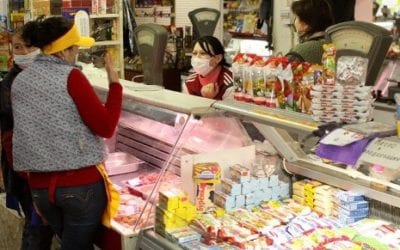
More Attacks on Rights of Ukrainian Workers
Read More
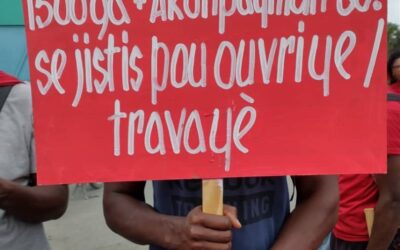
Haiti Garment Workers Win Key Benefits
Read More
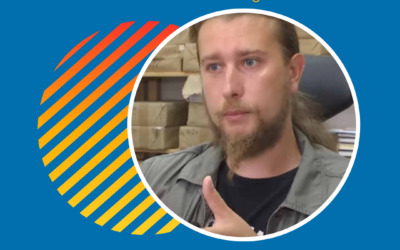
Podcast: In Midst of War, Ukrainian Parliament Attacks Worker Rights
Read More
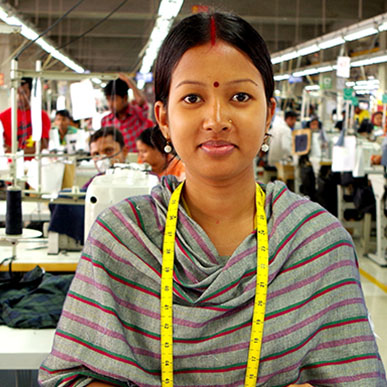
The Solidarity Center Podcast

BILLIONS OF US, ONE JUST FUTURE
CONVERSATIONS WITH WORKERS (& OTHER SMART PEOPLE) WORLDWIDE SHAPING THE WORKPLACE FOR THE BETTER
Hosted by Solidarity Center Executive Director Shawna Bader-Blau
Subscribe: Amazon | Apple Podcasts | RSS | Spotify | Stitcher
No Results Found
The page you requested could not be found. Try refining your search, or use the navigation above to locate the post.
Our work
Programs in
Countries
Reaching
People
Works with
Unions & other Ngos
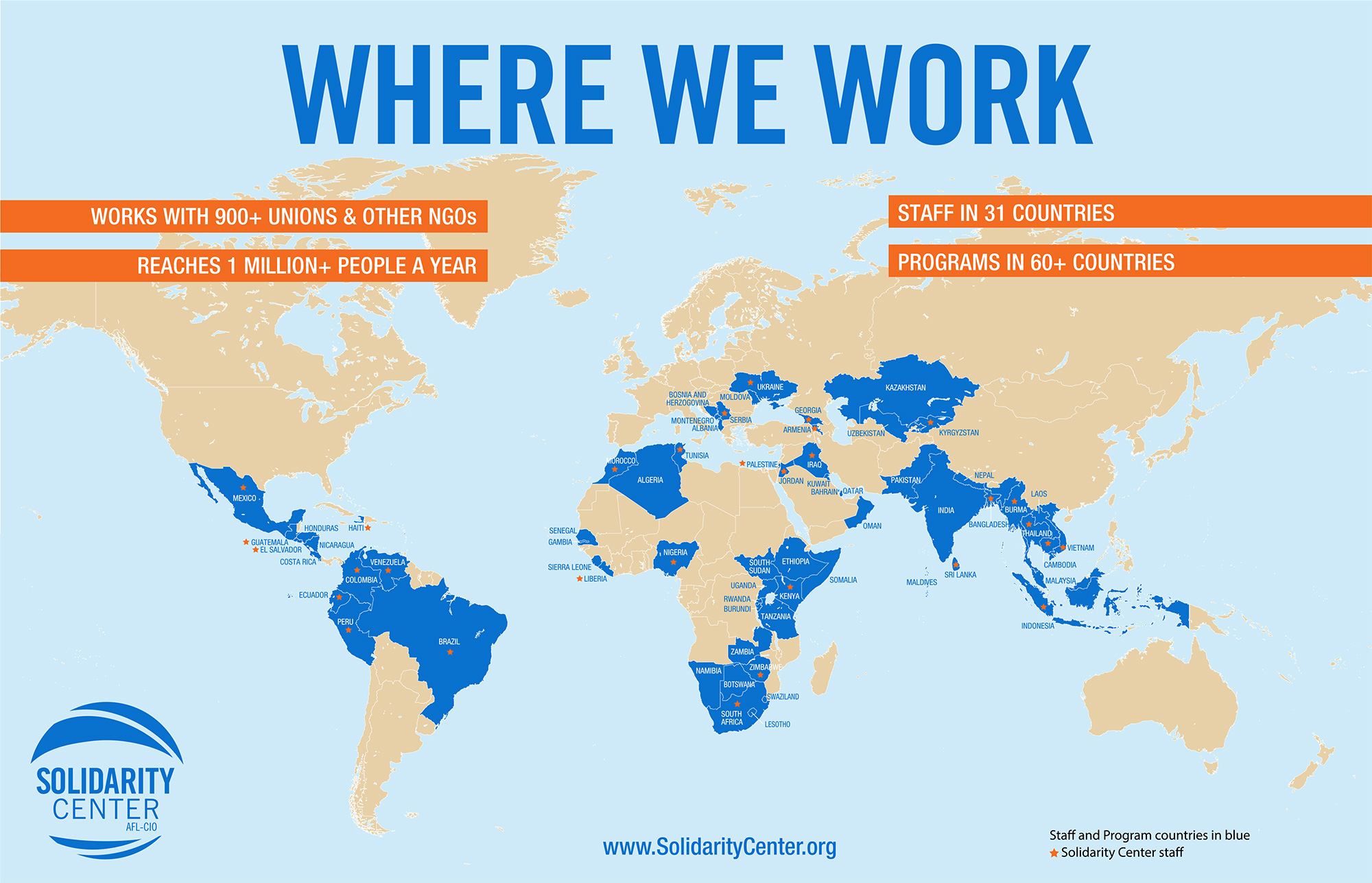
Reaching 1 Million+ People Worldwide
Solidarity Center in the News
Is the U.S. Ignoring Human Trafficking Abuses to Score Its TPP Trade Deal?
Lured by the promise of $316 a month to work on road construction, Arjunan traveled last year from India to Malaysia, where his employer confiscated his passport and decided to pay him just $36. When Arjunan protested, his boss phoned India and told Arjunan’s wife that he would cut off her husband’s leg and hand. So she pawned jewelry to buy back the confiscated passport. But even after she paid out nearly $1,400, Arjunan’s boss still won’t give it back. Arjunan’s ordeal, documented by the Solidarity Center, is typical in Malaysia, which may be upgraded by the State Department for its efforts to fight human trafficking.
Transported Like Pigs: Cambodia’s Garment Makers Risk Death Just to Get to Work
Regarding compensation to victims of workplace accidents, says Solidarity Center Country Dave Welsh, “In every situation I’ve been involved in, and I’ve been involved in a lot, it’s like pulling teeth making the government fulfill its obligation.”
West’s Fashion Industry Relies on Sweat of Asia’s Teenagers
Across Asia, millions of children toil for long hours, earning barely enough to live on, while sewing garments for fashion brands in the West. “Brands chase jurisdictions where there is extreme poverty, the rule of law is weak and it is easy for them to skirt labor laws,” says David Welsh of the Solidarity Center.
Follow Us On Twitter
Mark your calendar
Test 12-1-22
Read More
Women Workers’ Voices and Participation on the COVID-19 Recovery Front Lines
Read More
